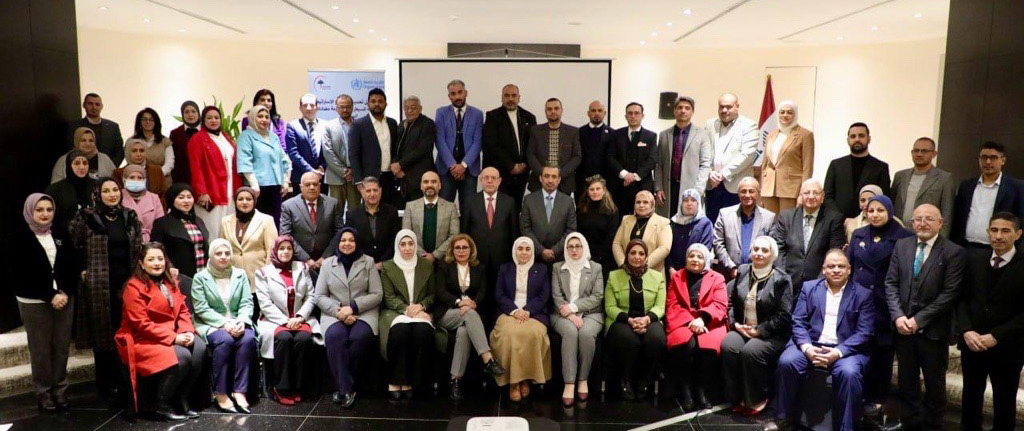
19 June 2025 – Iraq has taken a major step in the fight against antimicrobial resistance (AMR) with the finalization, following a recent national multi-stakeholder workshop held in Baghdad, of its updated National Action Plan (NAP) for 2026–2030.
The workshop was jointly organized by the World Health Organization (WHO) Country Office in Iraq and the Ministry of Health, with technical guidance from WHO Regional Office for the Eastern Mediterranean and support from ReAct Africa. It brought together representatives from all relevant line ministries – environment, agriculture and higher education and scientific research – and Ministry of Health directorates, the United Nations Children’s Fund (UNICEF), Médicine sans Frontières and the private sector.
Intense discussions and cross-sectoral group work focused on ensuring the updated NAP was:
technically sound and reflected the latest global standards;
relevant in addressing the local Iraqi context; and
practical and measurable, with a clear path from planning to action.
The workshop also aimed to strengthen national ownership, deepen institutional collaboration and create the foundations for accountability and resource mobilization moving forward.
“The updated National Action Plan on AMR is a strategic framework to strengthen Iraq’s health system. Its successful implementation relies on strong national and international collaboration to meet its vital objectives in protecting future generations, supported by coordinated multisectoral action and strong political advocacy to ensure high-level commitment, policy alignment and joint efforts across all sectors,” said Ministry of Health Director General of Public Health Dr Riyadh Abdul Ameer.
Recognizing the urgent need to coordinate across human, animal and environmental health sectors, the Plan incorporates a robust One Health approach.
The workshop concluded with stakeholders endorsing a shared vision for implementation and reaffirming their commitment to translate global recommendations into measurable steps on the ground.
“Iraq’s updated AMR Action Plan is a strong example of national leadership and multisectoral collaboration in our Region. WHO remains committed to supporting Iraq in turning this Plan into action through the One Health approach and sustained political commitment,” said Regional Advisor for Antimicrobial Resistance at the WHO Regional Office for the Eastern Mediterranean Dr Hala Amer.
The WHO Country and Regional Office will continue to support Iraq in operationalizing the plan by providing technical guidance, including on costing and budgeting, policy dialogue, capacity-building and coordination with national and international partners.
“Iraq’s updated AMR National Action Plan marks a pivotal step forward in our commitment to combat antimicrobial resistance through the One Health approach. The Plan reflects our determination to translate global recommendations into concrete actions that protect human, animal and environmental health in an integrated and sustainable manner,” said AMR Programme Manager at the Ministry of Health Rana Mahdi.
While Iraq’s renewed focus on AMR offers a model for progress through partnership and perseverance, continued political commitment, including domestic funding, multisectoral coordination and capacity strengthening, is essential to ensure the plan is fully operationalized and all its goals achieved.



